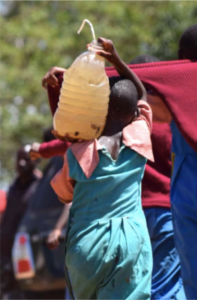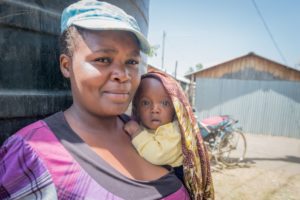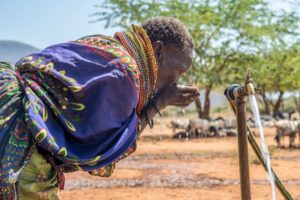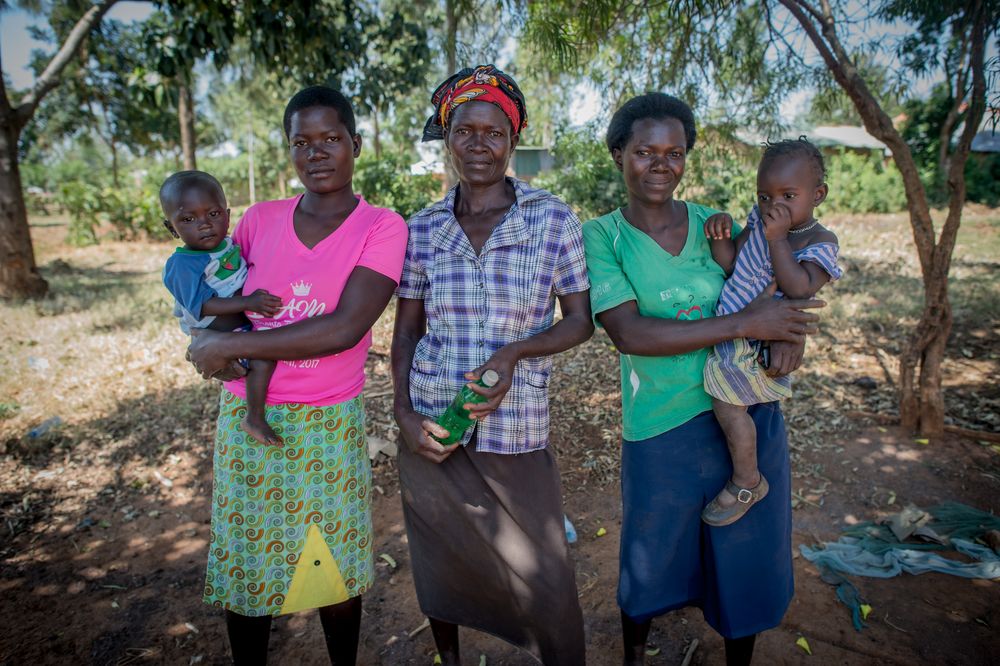March 8, 2019
Water Issues are Women’s Issues
It’s International Women’s Day, a day to not only reflect and commemorate the incredible progress and strengths of women all over the globe but to speak up about the work we still have left to do in the fight for women’s rights and gender equality in general. Stand with us on International Women’s Day, and every day, as we commit to improving women’s lives and amplifying their voices through clean water.
Now, you may ask, “how does water have anything to do with women?” The task of providing water for households falls disproportionately to women and girls. In Kenya, women spend an average of 4.5 hours fetching water per week. The time required for collecting water can pull girls out of school and leave women with fewer options to earn an income, which leads to a greater gap in gender inequality.
 Collecting water also requires tremendous physical exertion and can be very dangerous. In countries in Asia and Africa, women walk an average of 3.7 miles per day collecting water. Carrying such heavy loads over long distances on uneven and steep terrain can result in strained backs, shoulders, and necks, and other physical injuries, not to mention for women who are pregnant or carrying small children.
Collecting water also requires tremendous physical exertion and can be very dangerous. In countries in Asia and Africa, women walk an average of 3.7 miles per day collecting water. Carrying such heavy loads over long distances on uneven and steep terrain can result in strained backs, shoulders, and necks, and other physical injuries, not to mention for women who are pregnant or carrying small children.
Once women reach a water source, they often face conflict at water points and the risk of physical or sexual assault. In countries like Kenya, water is unevenly distributed in both time and space, which often leads to water shortages and can evolve into heated disputes, or even violence. Oftentimes, women are at the forefront of the struggle.
Not only is the act of fetching water dangerous, arduous, and disempowering, but the water that the women return with is often unsanitary and disease-ridden. Preventable waterborne illnesses are the leading cause of death. When household members are ill, women assume more of the burden of care and face additional health threats. During childbirth especially, clean water and sanitation are the difference between life and death for both mothers and babies.

The problems continue when you look at sanitation. Imagine being afraid every time you need to use the toilet. For more than 1 billion women and girls around the world, those fears are real. Many communities don’t have decent toilets and women have to use the bush with the fear of rape and death.
Young girls suffer the most– it’s about their dignity, self-confidence, and future prospects. Girls are most likely to miss classes if they are menstruating and their schools do not have private toilets. This further solidifies gender inequalities and decreases girls’ chances for success.
 To offer solutions to the problems above, we focus on providing clean, sustainable water to empower communities and the women and girls within them. Once clean water is available, disease rates drop by 64%, and education rates for girls increase by 58%. Women can participate more in the economy and earn more income, which amplifies their voice within the community and enables gender equality to improve. Girls can return to the classroom and focus on their studies in order to achieve their dreams and lead more successful lives.
To offer solutions to the problems above, we focus on providing clean, sustainable water to empower communities and the women and girls within them. Once clean water is available, disease rates drop by 64%, and education rates for girls increase by 58%. Women can participate more in the economy and earn more income, which amplifies their voice within the community and enables gender equality to improve. Girls can return to the classroom and focus on their studies in order to achieve their dreams and lead more successful lives.
But, it goes far beyond simply having access to clean water.
Women also have to be empowered to take ownership of their water system and lead the way in maintaining it. That’s why in every community we partner with, we ensure a water community is equally balanced with women and men- to ensure they have decision-making power and that their voices are heard.
Well Aware joins the world in continuing to fight for gender equality and women’s rights by providing more women and girls with the clean water they need to take back their lives and thrive. For every $10 donated, Well Aware is able to provide clean water to one person for decades. We invite you to join us on International Women’s Day and stand up as an activist for gender equality. Together, we can make the world a more gender-balanced place. #BalanceforBetter
